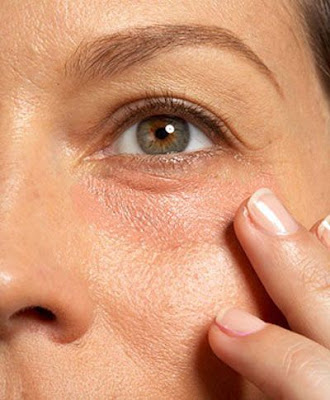Acne & Acne Scars is a chronic skin disease of the facial, chest, neck, shoulder and back hair follicles that commonly affects all adolescents and some adults during puberty. Acne & Acne Scars causes pimples, blackheads and blemishes. Our skin has tiny pores that are blocked by dirt, oil, dead skin cells and bacteria. When this happens, pimples or zit can form on the skin. The problem of acne starts when oil from the sebaceous glands (oil glands) under the skin closes the small pores of the hair follicles.So let,s see that how can I get rid of acne and acne scars.
How can I get rid of acne and acne scars?
Types of Acne & Acne Scars:
Acne & Acne Scars can have many forms
Black Heads:
If the size of the pore is large, the clog appears as blackheads, with a small flat spot along its center which is black in color. In this type, pimples appear on the surface and are without inflammation.
Whiteheads:
If the pore size is too small, the clog appears in the form of whiteheads. These types of pimples live below the surface of the skin and are also non-inflammatory.
Cysts:
This is a deep, white pus-filled center and painful pimple that results in scars and red sores.
Nodule:
It is an inflamed, large and strong pimple that is deep inside the skin with a diameter of half a centimeter. This type of pimple causes painful sores and scars.
Papules:
Small and tender bumps, pink in color and bulging on the skin.
Pustules:
Less inflammatory blisters that are filled with pus and appear on the skin.
Reasons:
Acne can be caused by a number of problems that occur during the lubrication process of the skin.
This can happen when:
1. Too much oil is released from the hair follicles.
2. Accumulation of dead cells in the pores of the skin.
3. Bacteria accumulate on the pores of the skin.
When dirt and bacteria close the pores, the leaking oil cannot come out, forming a pimple or zit on the pores.
Acne also occurs when the sebaceous (oil) glands under the hair are stimulated during puberty and due to other hormonal changes.
When a cyst or blister filled with inflammatory pus ruptures, fluid comes out and spreads to adjacent surfaces of the skin. Bacteria and dirt in the pus cause the development of another pimple adjacent to the existing pimples.
Must Read:
Weakened immune systems also play a role in the entry of bacteria into the pores of the skin.
Androgen is a male hormone, which regulates the secretion of oil in the sebaceous glands. Androgen levels rise when puberty begins.
Increased androgen levels cause the oil glands under the skin to enlarge. Thus the growing oil glands begin to secrete large amounts of sebum (oil). Excessive oil causes cell walls to break down in the pore, allowing bacteria to easily enter the pores.
Family history of acne. When parents are more prone to acne in their youth, their children are more likely to get acne.
Risk factors:
There are various risk factors that can cause acne.
Medications that contain high androgens, barbiturates, corticosteroids and lithium.
birth control pills.
Cosmetics that are high in fat.
Hormonal changes during menstruation in women.
Stress does not cause acne but it can make it worse if you already have acne.
Refined sugar or carbs and oily foods.
Exposure to highly polluted environment.
Too much dryness on the scalp.
Excessive facial washing can dry and irritate the skin.
Work in industrial areas where halogenated aromatic hydrocarbon is exposed.
Using dirty or rusty razors can also increase the risk of acne.
Touching other people's pumps.
Friction, pressure or pressure on the skin.
Between the ages of 12 and 24.
Suppressing or teasing pre-existing pimples.
Acne Prevention:
Wash your face twice a day with an oil-free and water-based cleanser. Avoid vigorous washing which worsens acne and damages the skin surface.
Do not squeeze the pimples as they can cause blemishes, swelling or acne on the skin.
Common side effects of acne are skin peels and dryness. This can be prevented by using a moisturizer.
Keep your hair clean and prevent touching your face and hands.
Wash your sheets once a week as sweat and dirt on the sheets can cause acne to develop.
Wear loose clothing to avoid sweating, which can cause skin damage.
Use products labeled water based or non-comedogenic.
Many acne treatments increase sensitivity to sunlight, so wear completely closed clothing or use sunscreen lotion.
Conclusion: How can I get rid of acne and acne scars?
Acne & Acne Scars is a chronic skin disease of the facial, chest, neck, shoulder and back hair follicles that commonly affects all adolescents and some adults during puberty. Acne & Acne Scars causes pimples, blackheads and blemishes.
Like you can follow
me, I will share next time.
Dua Fatima | Follow my blog










Comments
Post a Comment
Please do not enter any spam link in the comment box.